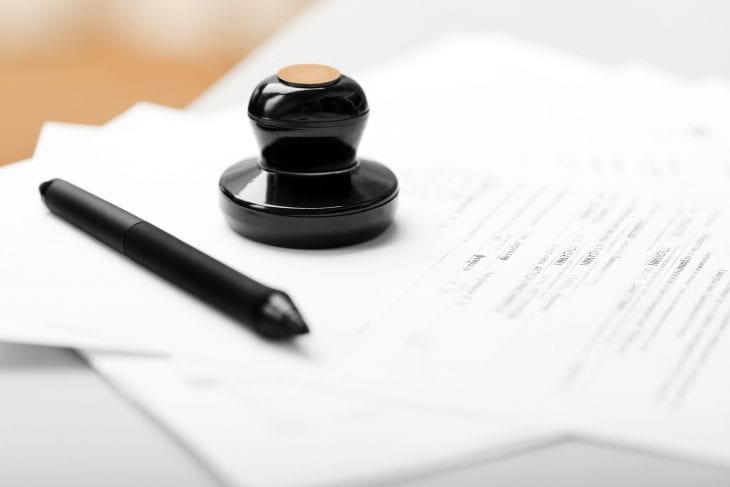As well as having many advantages there are, of course, a few ‘disadvantages’ about entering into a Scottish Trust Deed.
Since the arrangement is legally binding once approved, it’s important to be aware of these and in this article we take a closer look at some of the more serious consequences.

Source: smartcorp.com.au
1. If you’re a property owner then you may well be required to release any equity in your property. Ultimately, this could mean that you’ll need to either re-mortgage or sell it at some point during the arrangement. There is also an option for the over 55 year olds of equity release in the form of a lifetime mortgage in order to clear the debt. This option will of course depend on the type of deed you have and whether equity release is a suitable option, so it’s always best to get independent professional advice” said Alastair Shields, a qualified equity release adviser from EquityReleaseScotland.org That said, this potential requirement isn’t set in stone and some debtors are able to avoid doing this – especially if the amount of equity in your property doesn’t justify this course of action. However, if you own a property then it’s certainly advisable to speak with your Trustee about this in more detail and before you decide whether a Scottish Trust Deed is the best way forward given your personal circumstances.
2. If you’ve already entered into any type of debt enforcement process (for example, deductions from your salary) then this can’t be incorporated into your Trust Deed. For this reason it’s always a good idea to take advice about any potential Trust Deed arrangement at the soonest opportunity – and before your creditors decide to take such action against you.
3. Whilst you’re likely to have a poor credit rating already, any Trust Deed arrangement will be noted on your credit record for a period of 6 years and will affect your ability to lend in the future. That said, some creditors will still consider extending credit, albeit at a much higher interest rate and/or with the additional requirement that you have a guarantor in place.

Source: rd.com
4. If you fail to maintain your set monthly repayment under the terms of your Trust Deed Scotlandthen your creditors could choose to make you bankrupt – and this can have very serious consequences.
5. Whilst they’re unlikely to be viewed by your employer, friends or family, you should remain mindful that details of your Trust Deed will appear in the Edinburgh Gazette and will also be added to the Register of Insolvencies which can be viewed by members of the public.
6. Until such time as your Trust Deed has been discharged in full you’ll be very limited in terms of obtaining credit. In fact, you won’t be able to acquire any credit exceeding the sum of £250.00 and any such arrangement will have to be declared to your Trustee.

Source: California hard money lenders
7. If you have a limited company then you’ll no longer be able to stand as a Director. Consequently this can have very serious consequences if you’re a sole Director and dependent on your company’s income.
8. Finally, even if your Trust Deed has been granted ‘protected status’, it’s still not impossible for your Trustee and/or creditors to petition for your sequestration (bankruptcy) if they can prove such an arrangement would be more beneficial to your creditors.
- Engaging in a Scottish Trust Deed might strain personal relationships, especially if co-ownership of property or shared financial responsibilities are involved. Joint property owners might face challenges due to the potential need to release equity or even sell the property, leading to disagreements over financial decisions. Moreover, family and friends might discover the arrangement through the public records, which could potentially lead to uncomfortable conversations and explanations.
- While a Trust Deed is designed to provide relief from overwhelming debts, it also restricts your financial flexibility during the repayment period. The fixed monthly payments you’re obligated to make might not align with unexpected expenses or changes in your financial situation. This lack of flexibility could add stress to your financial life, making it crucial to carefully assess your ability to meet the repayment terms before entering into the agreement.
- If your profession requires a high level of financial responsibility or trust, entering into a Scottish Trust Deed could have professional implications. Some employers, especially in industries where financial integrity is paramount, might perform credit checks as part of their hiring or promotion processes. The presence of a Trust Deed on your credit record could potentially impact your career prospects or advancements.
- The impact of a Trust Deed on your credit score and borrowing ability doesn’t end once the arrangement is complete. The negative mark remains on your credit history for six years, making it challenging to access affordable credit during that period. This prolonged credit restriction could hinder your ability to make significant financial decisions, such as purchasing a new home or financing higher education.
- Even if your Trust Deed has been granted ‘protected status,’ there’s still a risk that your Trustee or creditors could petition for your sequestration (bankruptcy). This potential outcome serves as a reminder that while a Trust Deed can offer debt relief, it’s not an absolute guarantee against more severe measures being pursued if creditors believe it would be more beneficial for them. This uncertainty underscores the importance of thoroughly considering all options and potential consequences before committing to a Trust Deed arrangement.
Final Thoughts
A Scottish Trust Deed, while offering debt relief to individuals facing overwhelming financial burdens, comes with a range of potential disadvantages and implications that should be carefully considered. From potential property equity release and limited financial flexibility to the impact on personal relationships and long-term credit prospects, individuals must weigh the pros and cons to make informed decisions about their financial future. Seeking professional advice from EveryInvestor and thoroughly understanding the terms of the Trust Deed are essential steps to take before entering into such an arrangement.
